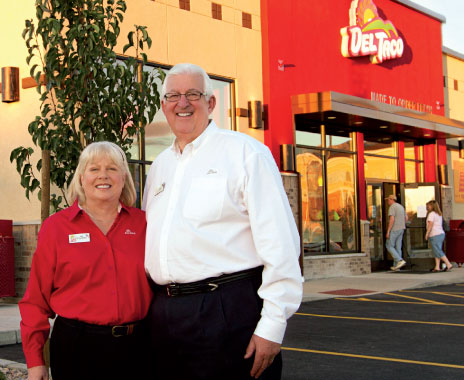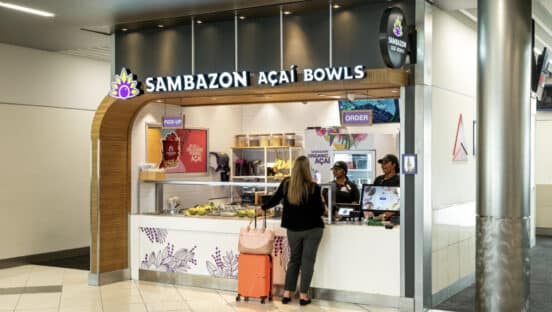Paul Hitzelberger hasn’t exactly had a normal retirement. After serving as chief marketing officer for Del Taco from 1986 to 2001 and being part owner for all but three years of that time, he chose to take over some of the company’s worst-performing franchise locations, all located in Utah, and turn them around. His wife, Jane, joined the venture to help with administrative tasks, and the pair began to reinvigorate eight locations in the Salt Lake City region.
Today, the Hitzelbergers run 26 units around the city, with two more in development and nine more under consideration.
Hitzelberger aims to implement a management strategy that encourages community interaction and offers strong incentives to staff. He shares how lessons from the C-suite have helped him develop a strong company culture.
1. Serve your customers and your team
It was recommended to me when I took over [the original eight stores] to get rid of everybody, and I got rid of nobody. I really focused on the team. My management style is to invert the triangle—I’m at the bottom, the guest is at the top, and I’m here to mentor, coach, and provide direction to our team. That’s what was needed. We help each other achieve our objectives.
I opened all the restaurants for 24 hours. We focused on what the brand stands for, which is a fresh, quality product made to order with great value. The guests started noticing that. We focused on quality, we focused on cleanliness, then we focused on service, and it worked. We just kept improving every year.
2. Share in the rewards
We have a very strong bonus program. We give our team 30 percent of all cash improved over the previous year on the bottom line. I don’t know of a more generous bonus program than that. And we have no budgets. I don’t want to limit our people by a budget. I don’t want them to think that I can control their bonuses or their compensation by putting in too tough a budget. I want them to do their best, and the best is always doing better than last year. When that’s the case, they should share in that, so they get 30 percent of the cash improved over the previous year.
Our employees get regular health, dental, vision, and life insurance. They get a pre-tax cafeteria plan, 401(k), and short- and long-term disability. I don’t want them worried about what they’re making or the benefits that they need; I want them focused on the guests in their neighborhood.
3. Integrate into the neighborhood
I grew up in Chicago, and when someone new came into my community, we invited them over or brought something over to them to make them feel part of the neighborhood. What we do with Del Taco is the same. If there is a new business that comes in the strip center behind one of our restaurants, I’ll invite all of their people over for lunch on us free.
The other part that we offer to the community is added-value programs. We’re involved with 1,100 dentists and doctors throughout the state. So when someone goes to one of these dentists we partner with, they get a patient award with a little coupon to come in to Del Taco. We also have a lot of programs at elementary, middle, and high schools with super achievement awards. Our focus is really to do the right thing in the neighborhood, wherever that leads you.
4. Mind the debt
We don’t have a lot of debt as a company, and I’ve tried to keep that down. That’s one of the areas of failure of franchisees. They go in skinny or don’t have enough cash or working capital to fall back on. You have to start with a lot of cash. Whatever you think you need in cash, multiply it by three so that you have the ability to have the right staffing and provide the right service and have clean, inviting facilities, and then be able to do those right things in the neighborhood. A franchisee rents the brand; they don’t own it. That’s a key thing to keep in mind.
We do a weekly profit and loss statement, and that is so rare in this industry. I share these in full with all of our teams so that each general manager in every restaurant knows where they’re at and the things that they need to work on.
Numbers are important; menu mix is important; knowing what you’re selling, and then knowing who’s coming in the door, is important. And how do you get more of those people in the door? It is a system. One of the neat things about Del Taco is for 50 years it’s been a system. You need to have that system as a franchisee to fall back on. The other thing I like, and there are a lot of franchisors that don’t have this, is that over 50 percent of the system that Del Taco has is corporately owned, so it’s got to work for them. That, to me, is a hallmark of this brand, because they’re making the same decision that I would make.







